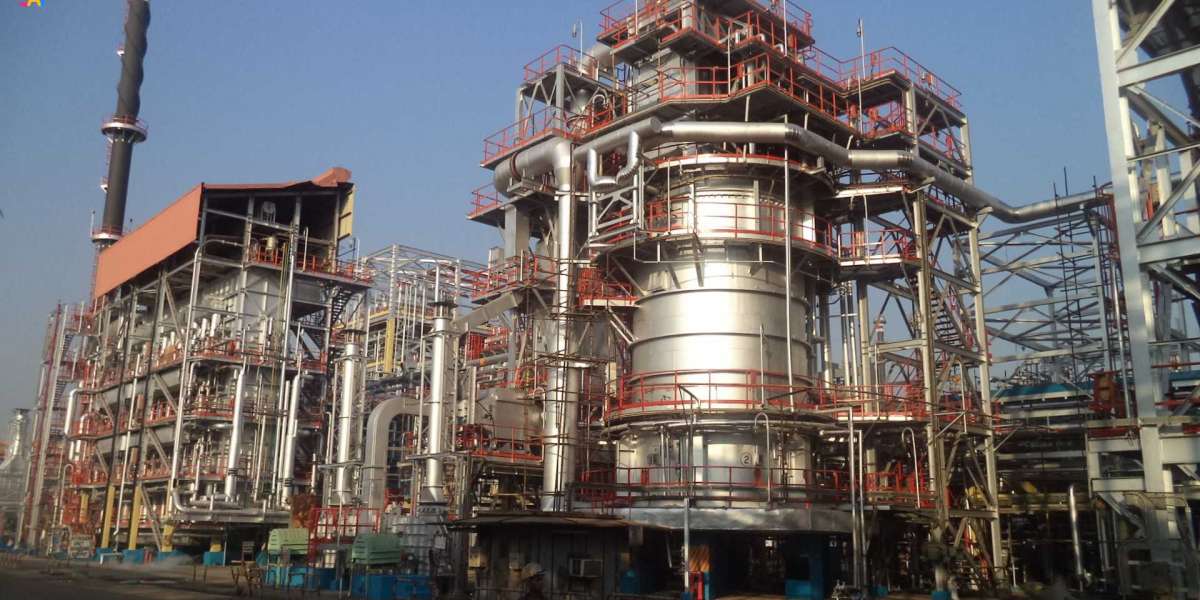Bihar, once perceived as a slow-growing state in terms of industrialization, is now witnessing a steady shift in both its urban and rural landscape. A significant contributor to this transformation is the ongoing development of infrastructure—particularly in sectors that involve heavy mechanical construction. From factories to processing units, warehouses to power plants, Bihar is opening its doors to robust industrial growth, made possible by quality construction and skilled mechanical expertise.
As development spreads across the state, the role of mechanical construction has become central to enabling this change.
The Rise of Mechanical Construction in Bihar’s Infrastructure Growth
Mechanical construction involves the fabrication, installation, and commissioning of equipment and steel structures that support industrial operations. In Bihar, where industries such as cement, agriculture processing, power generation, and warehousing are expanding, mechanical construction is playing a critical role in delivering operational facilities on time and with precision.
This type of construction is not limited to just erecting buildings; it includes installing complex systems like crushers, conveyor lines, feed section installations, rotary equipment, and cement mill buildings. These are the backbones of manufacturing and processing units that power Bihar’s economy.
Impact on Urban Development
Urban centers like Patna, Muzaffarpur, Gaya, and Bhagalpur are seeing an increase in commercial and industrial projects. As cities expand and require better connectivity, storage, and manufacturing capacity, mechanical construction services are helping meet these demands through:
Equipment Installation for Industrial Projects
The setup of plants and processing units demands accurate installation of critical equipment. Mechanical construction teams ensure the proper alignment, levelling, and structural support of machines used in cement production, steel fabrication, grain processing, and more. This precision ensures smooth functioning, longevity, and minimal breakdowns—key to sustainable urban industrial growth.
Fabrication and Erection of Structural Steel
Urban infrastructure today relies heavily on steel frameworks for both factories and high-capacity warehouses. Fabrication is carried out with exact measurements in a workshop and then transported to the site for erection. This method allows for faster project completion and higher load-bearing capacity. These structures support everything from raw material handling to final goods dispatch, improving overall supply chain efficiency in urban regions.
Bringing Industrial Growth to Rural Bihar
The true transformation of Bihar is not limited to cities. Infrastructure development is reaching rural areas, helping bridge the gap between underdeveloped regions and economic hubs. Mechanical construction enables this through:
Setting Up Agro-Based Processing Units
Bihar’s economy relies greatly on agriculture. To reduce wastage and increase value addition, agro-processing units are being set up in rural areas. These include flour mills, rice mills, cold storage, and oil extraction units. Each of these facilities needs storage structures, feeding systems, crushers, and mechanical equipment that are installed and commissioned by specialized construction teams.
Energy Infrastructure and Power Installations
Mechanical construction services also support the development of rural electrification and renewable energy projects. Installation of turbines, biomass power equipment, and backup generator systems in rural zones is helping industries and villages access reliable power. This, in turn, supports small-scale industries and daily life.
Boosting Employment and Skill Development
One of the direct benefits of infrastructure development is job creation. Mechanical construction projects require engineers, welders, fabricators, site supervisors, safety officers, and equipment operators. As the number of projects rises in Bihar, locals are being trained and hired for these roles.
Furthermore, many contractors now include training programs on fabrication techniques, machinery handling, and site safety, which not only improves project quality but also equips the workforce with long-term employable skills. This is especially important in rural Bihar, where access to vocational training is limited.
Challenges and Opportunities
Despite its potential, mechanical construction in Bihar also faces challenges. These include:
Logistics and connectivity in remote rural sites
Climatic conditions affecting site work, especially during monsoons
Delays in project approvals and permits
Shortage of skilled manpower in very remote areas
However, with continued investment, government support, and the rise of local construction firms, these challenges are being gradually addressed. As more projects are commissioned in both urban and rural Bihar, the demand for reliable and experienced mechanical construction teams is set to grow.
Conclusion: A New Era for Bihar’s Infrastructure
The landscape of Bihar is changing—and mechanical construction is at the heart of this transformation. Whether it's the erection of industrial steel structures in Patna or the installation of agro-machinery in remote villages, the impact of infrastructure development is visible and profound.
What was once a state with limited industrial capacity is now emerging as a hub of opportunity, powered by robust infrastructure, growing investments, and skilled construction services. The road ahead promises even greater growth, and mechanical construction will continue to be a key enabler of Bihar’s journey toward modernization. For more details you can also read construction company in bihar.




